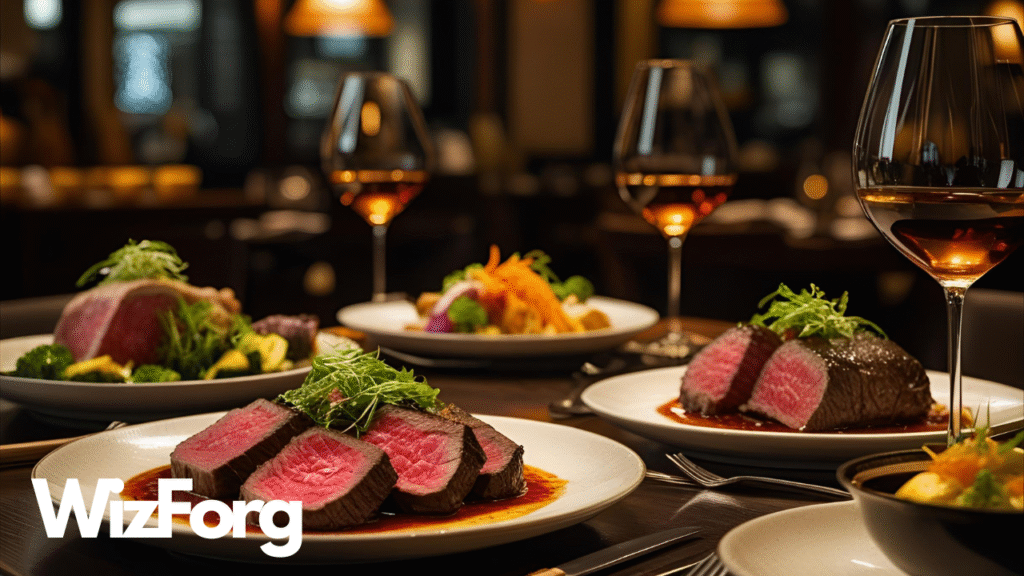You’ve seen it on the menu: “Wagyu Burger,” “Wagyu Striploin,” or “American Wagyu Steak.” But here’s a question most diners don’t think to ask: is that Wagyu real?
The truth is, in many cases, it’s not what you think.
What “Wagyu” Actually Means
In Japanese, Wagyu means “Japanese cow.” But that doesn’t mean any cow from Japan. Real Wagyu refers to four specific Japanese breeds, the most famous being the Tajima strain of Japanese Black cattle, which has the same bloodline as legendary Kobe beef.
These cattle are known for their high intramuscular fat, often called marbling, which gives the meat its signature buttery texture.
The Loophole in the Name
Outside Japan, especially in the United States, the term “Wagyu” is far more loosely regulated. Restaurants can label a dish as “Wagyu” even if the beef comes from crossbred cattle, usually a mix of Japanese and American Angus. While the result is still high-quality beef, it’s not the same as purebred Japanese Wagyu.
Some “Wagyu” burgers use only a small percentage of Wagyu genetics but market them as if they’re the real deal. The USDA doesn’t require restaurants to explain the origin or genetic makeup of the beef unless it’s labeled as “100% full-blood Wagyu.”
The Price Isn’t Always Proof
Just because a steak costs $80 doesn’t mean it’s authentic Wagyu. Some restaurants use premium pricing to create the illusion of exclusivity, knowing most customers won’t question it. Real Japanese Wagyu is imported in limited quantities, and true A5-grade cuts are rare and incredibly expensive.
If it’s cheap, plentiful, or served as a burger patty at a sports bar, odds are, it’s not the real deal.
How to Spot the Real Thing
Want to know if the Wagyu in your restaurant is authentic? Look for:
- Japanese grading (A4 or A5 on the menu)
- Mentions of origin (Kobe, Miyazaki, Kagoshima)
- Certifications or import documentation
- Marbling that looks more like a spiderweb than regular fat streaks
If none of this is visible or stated, it’s probably American Wagyu, which is still good but not the same experience as a true Japanese Wagyu steak.
So, Is It Worth It?
American Wagyu can be delicious. It’s tender, flavorful, and often more accessible. But if you’re paying premium prices expecting the legendary melt-in-your-mouth experience of Japanese Wagyu, you deserve to know what you’re eating.
Craving more honest food breakdowns and behind-the-scenes culinary truths? Check out Wizforg for in-depth articles on luxury ingredients, food myths, and global flavors.



